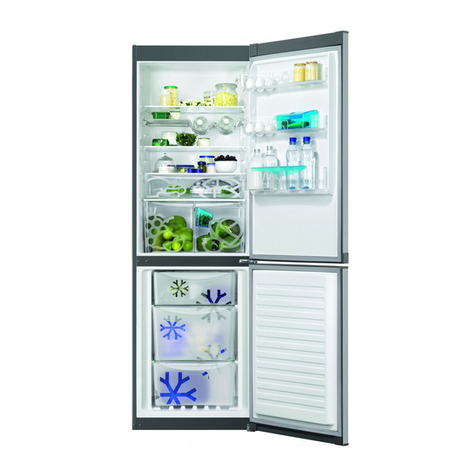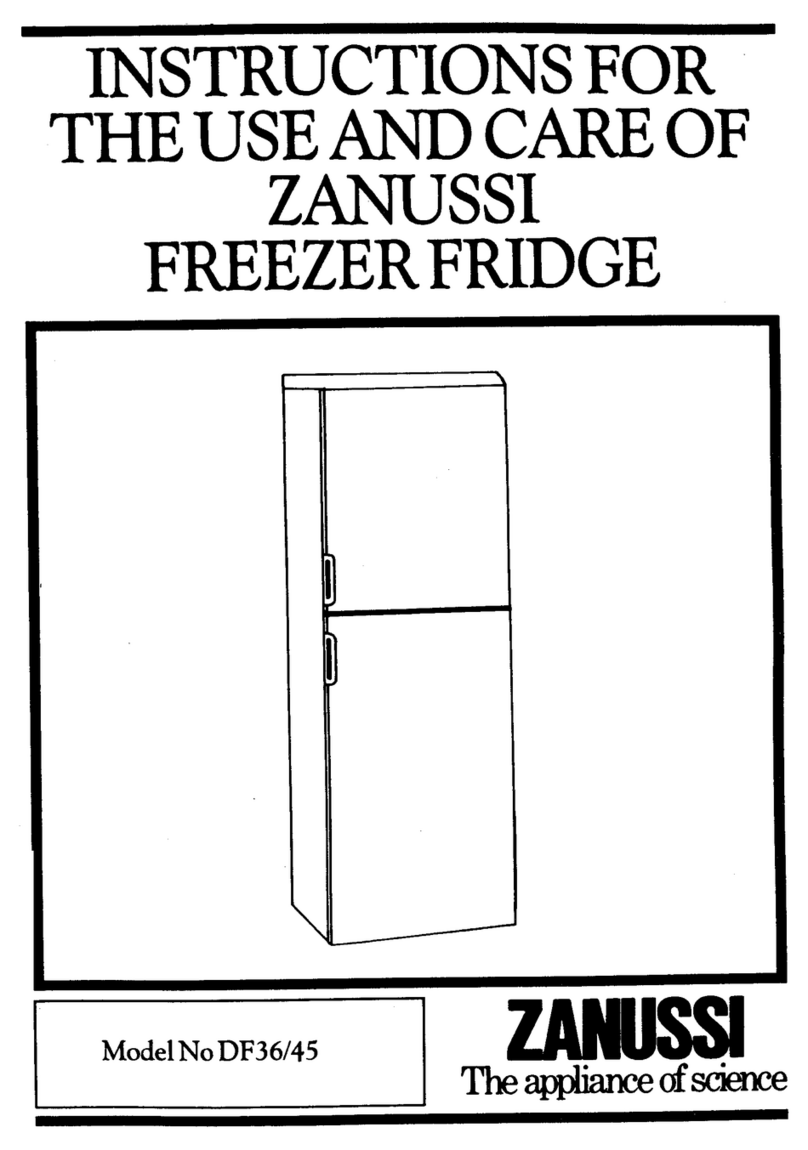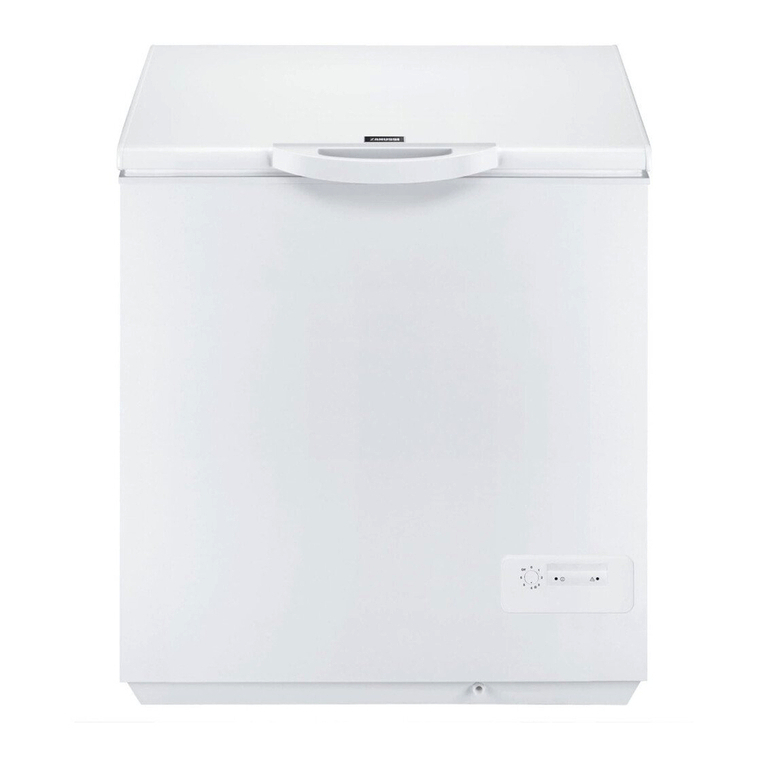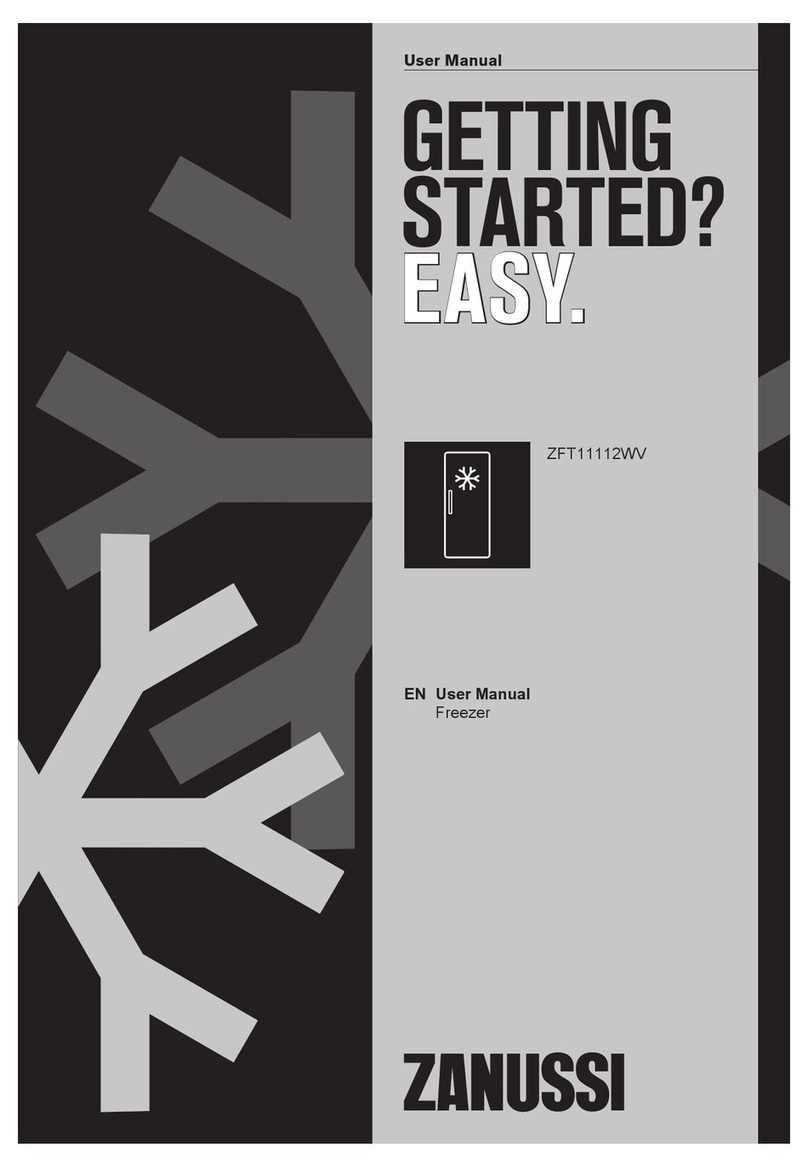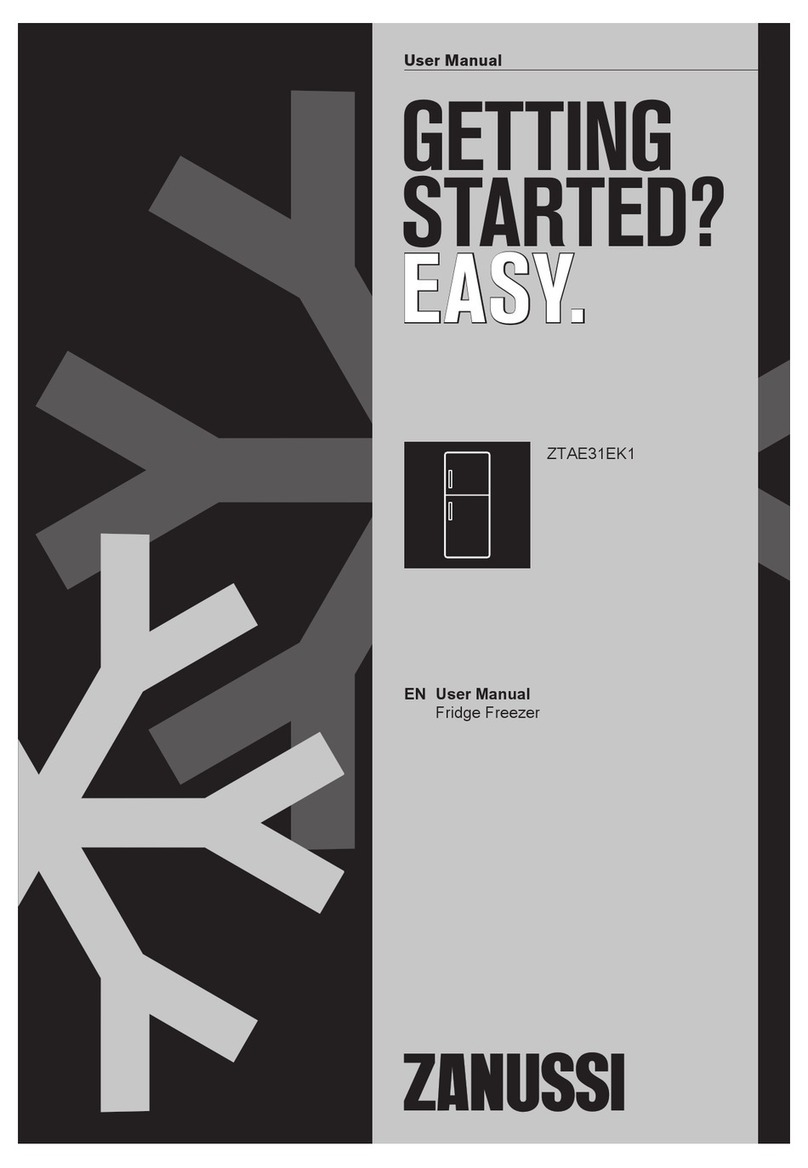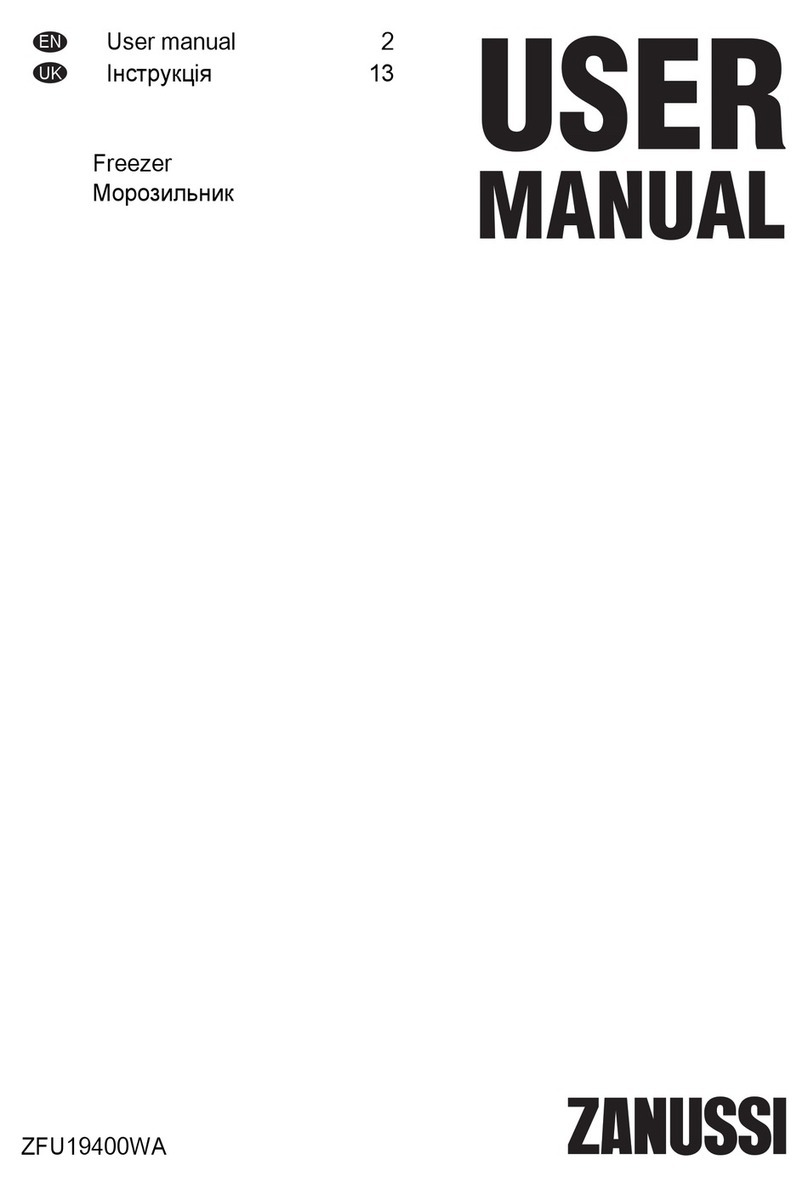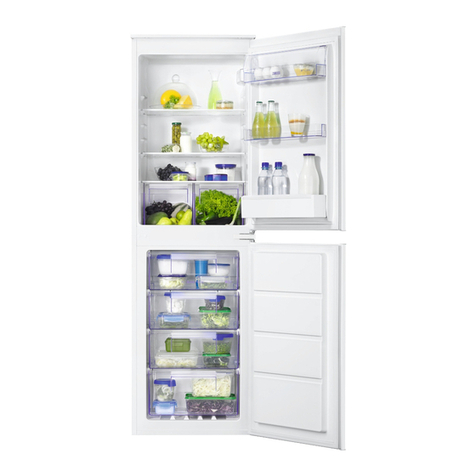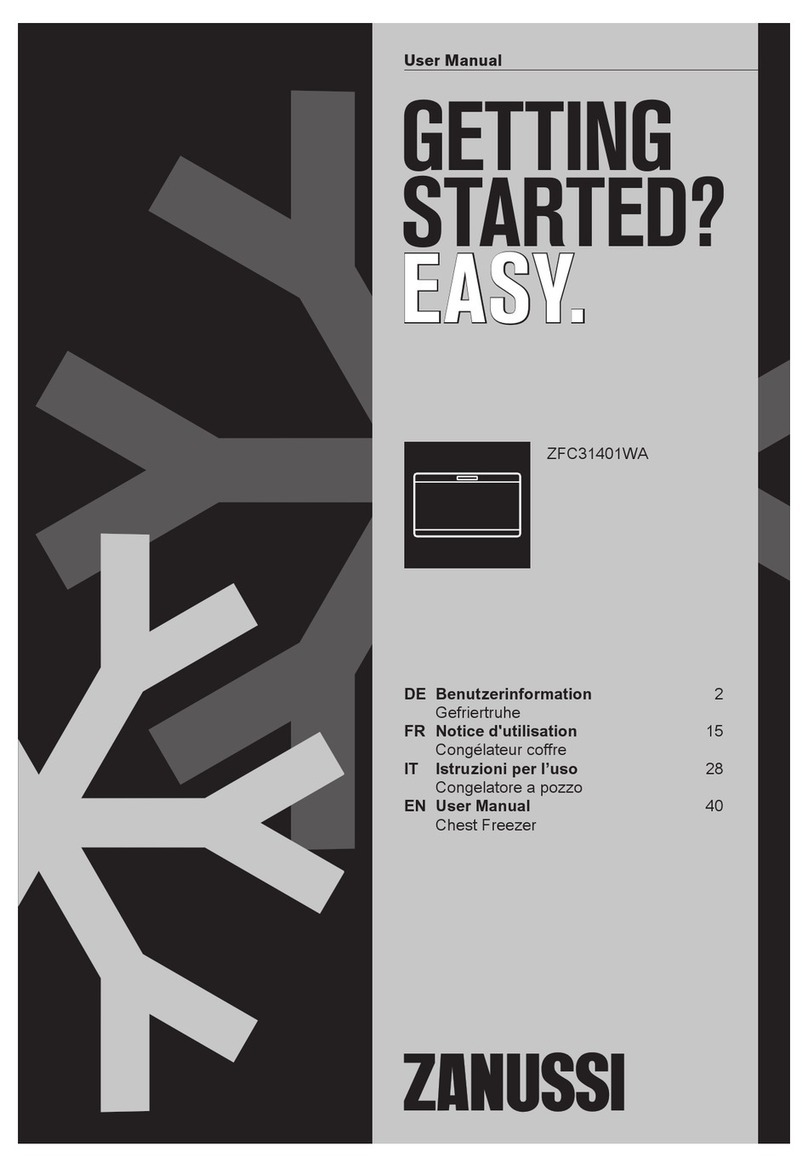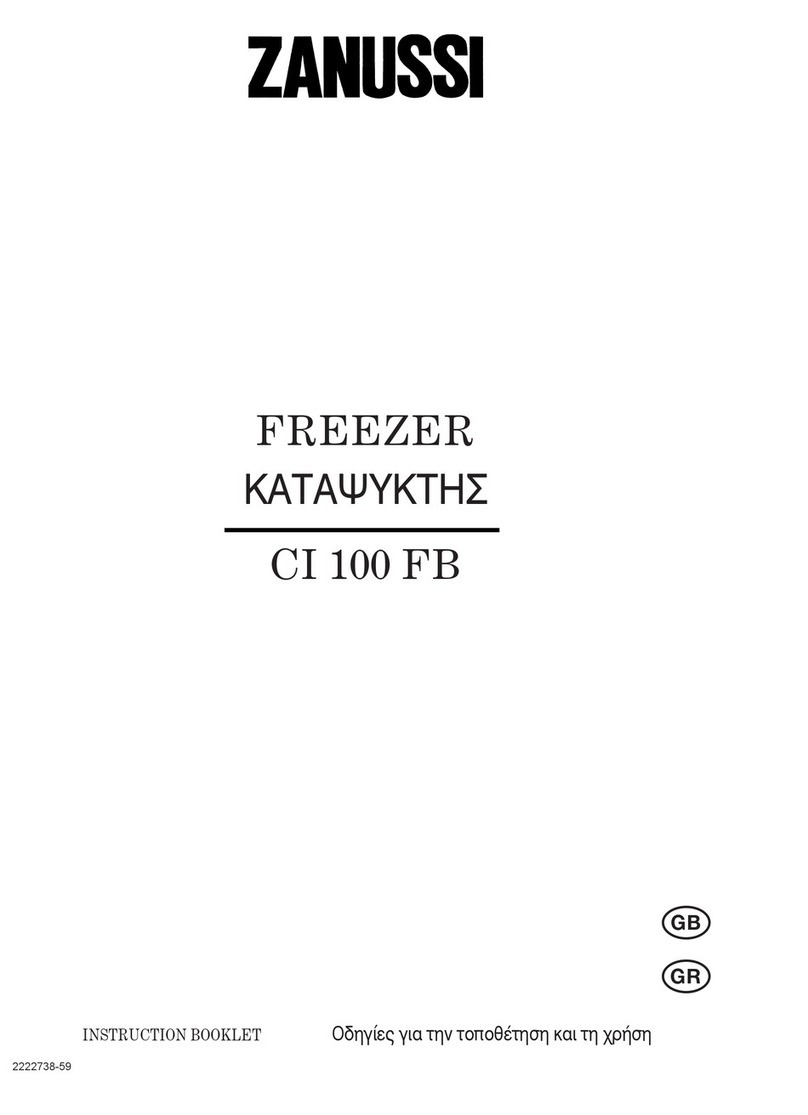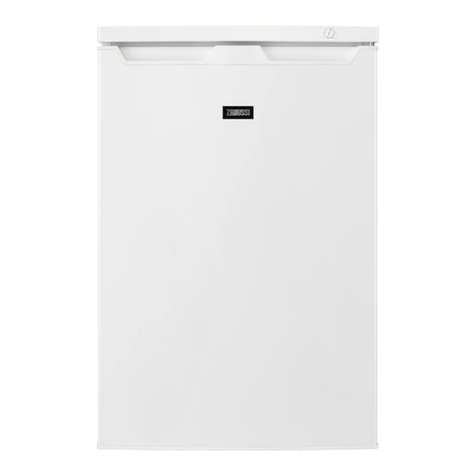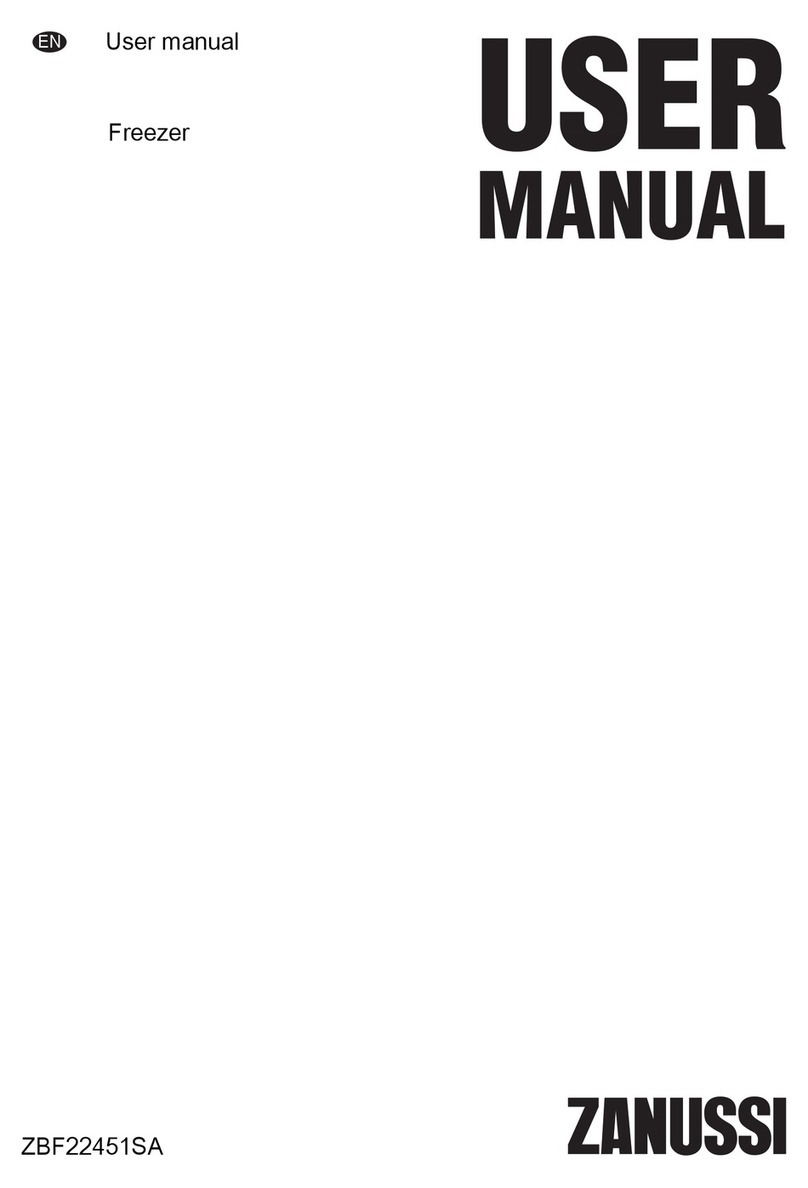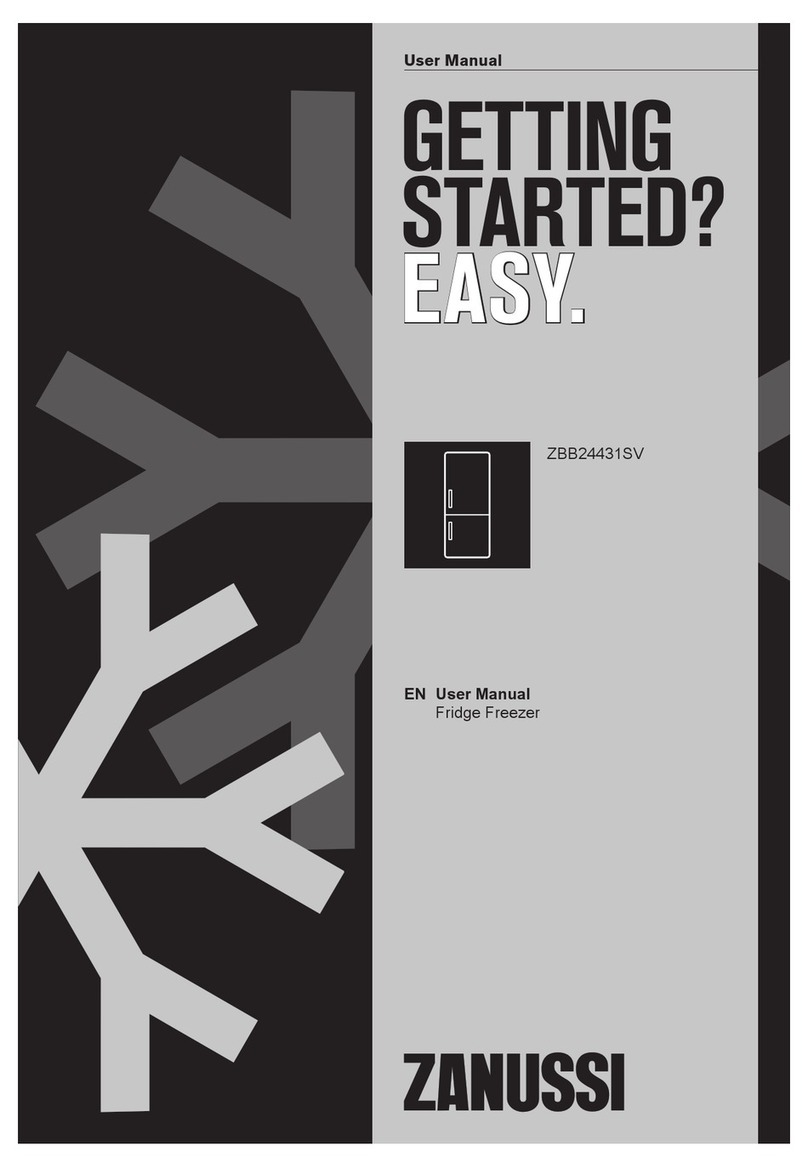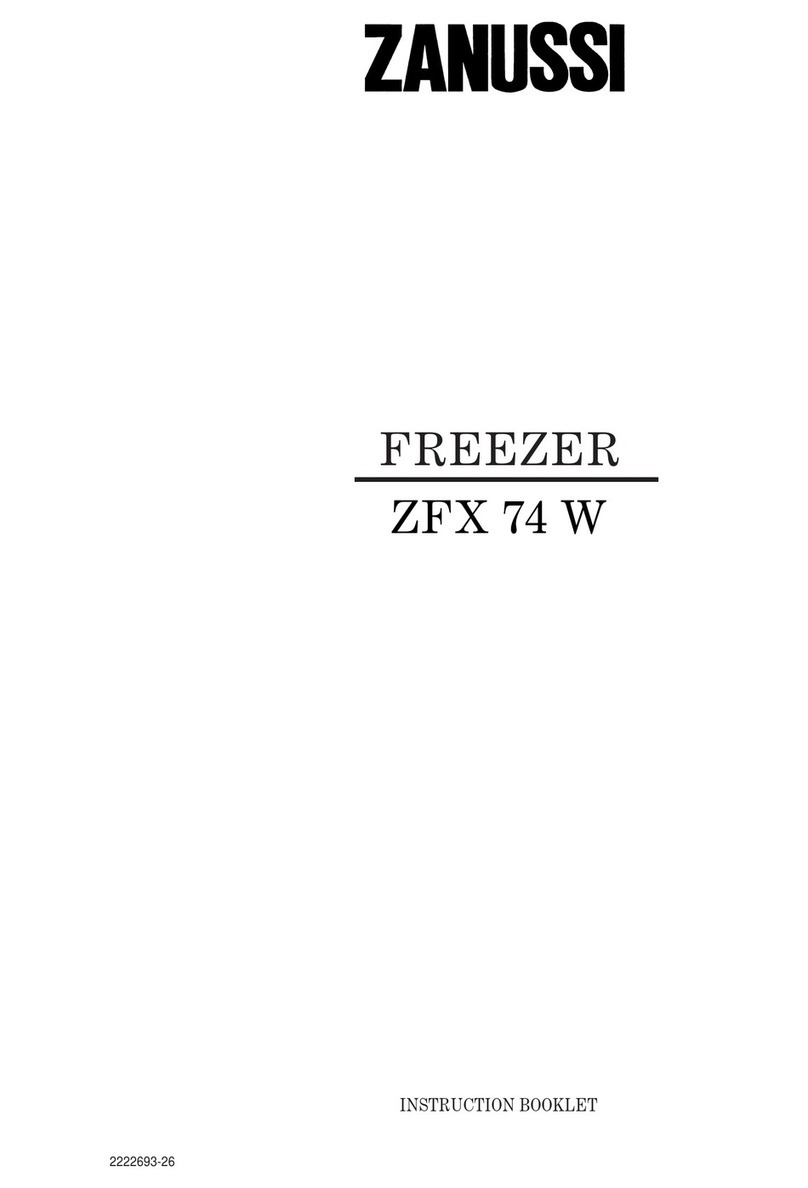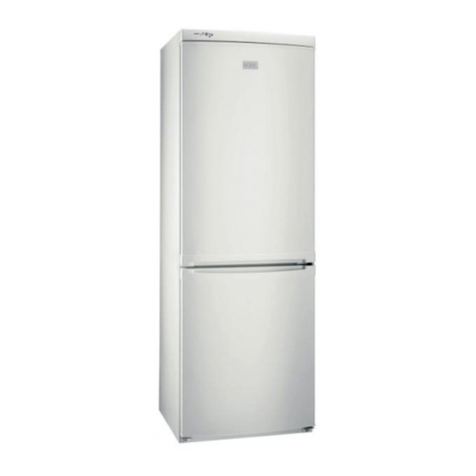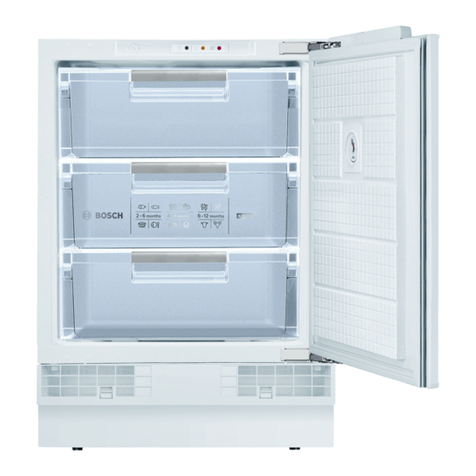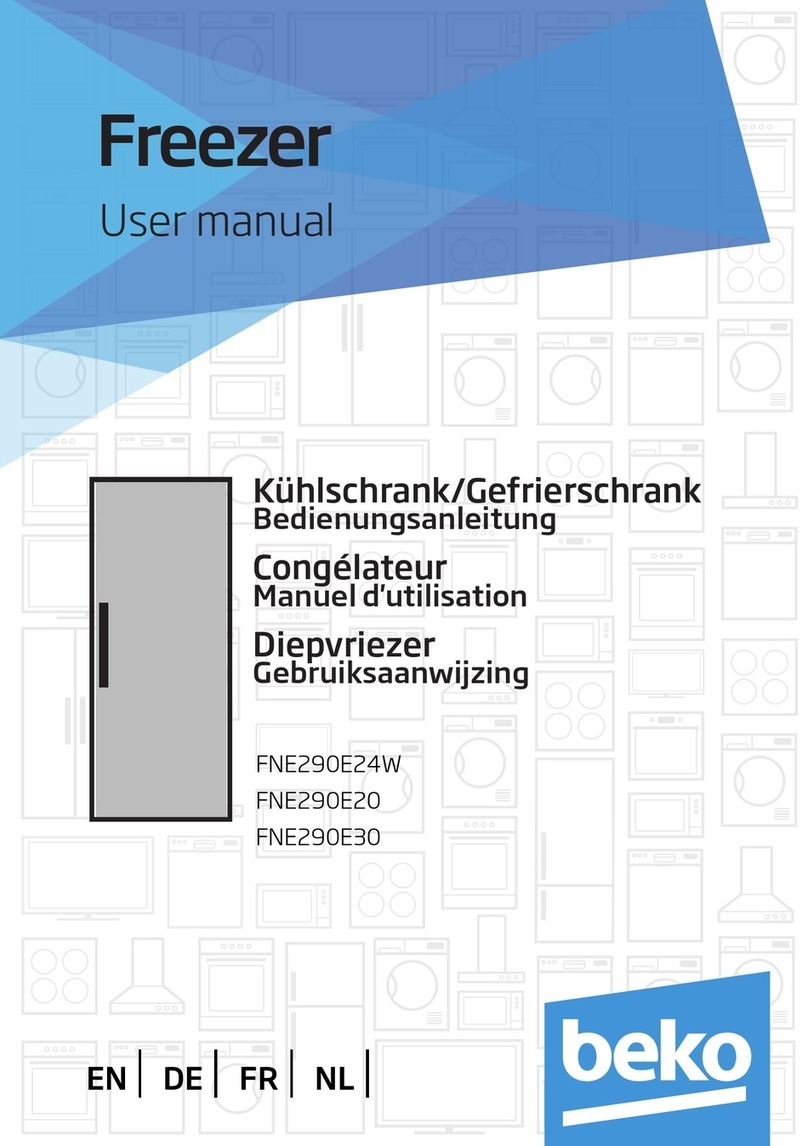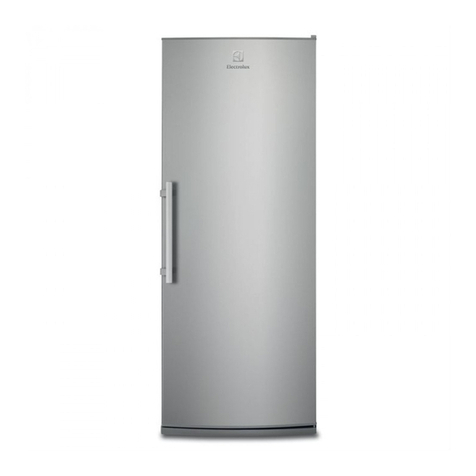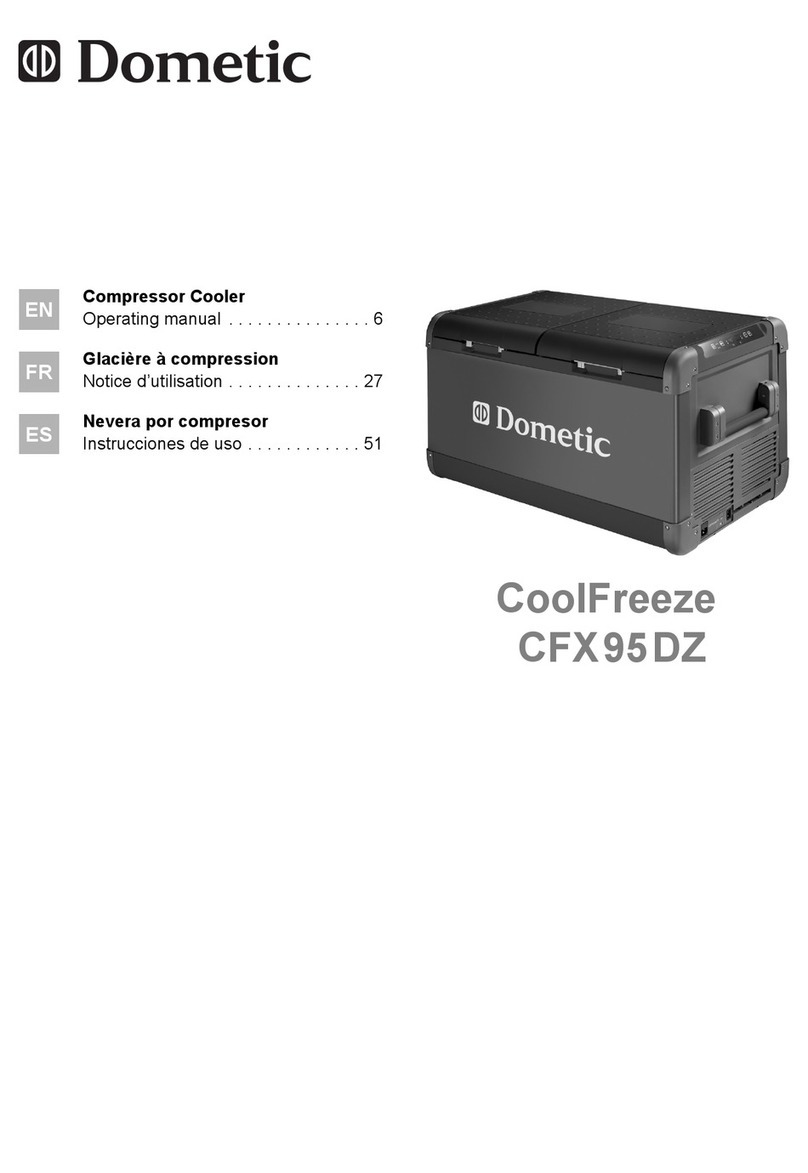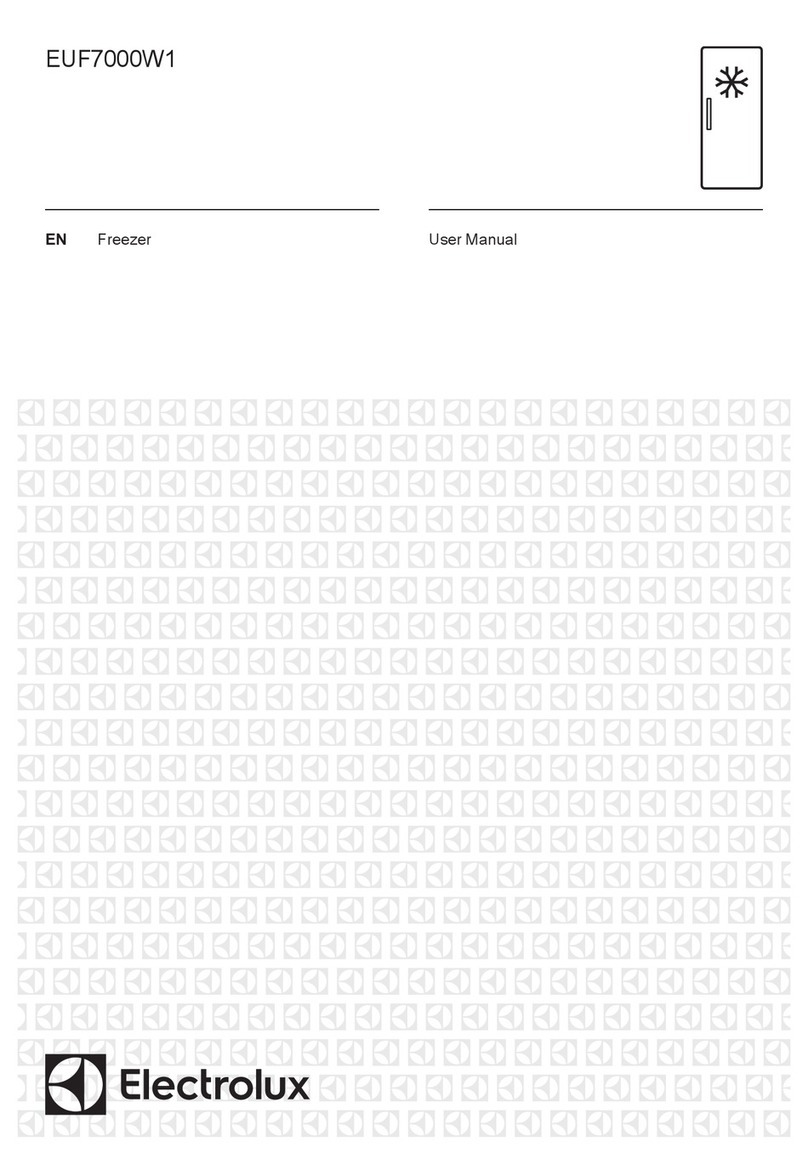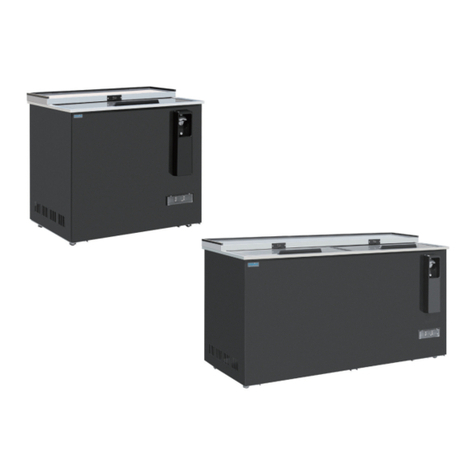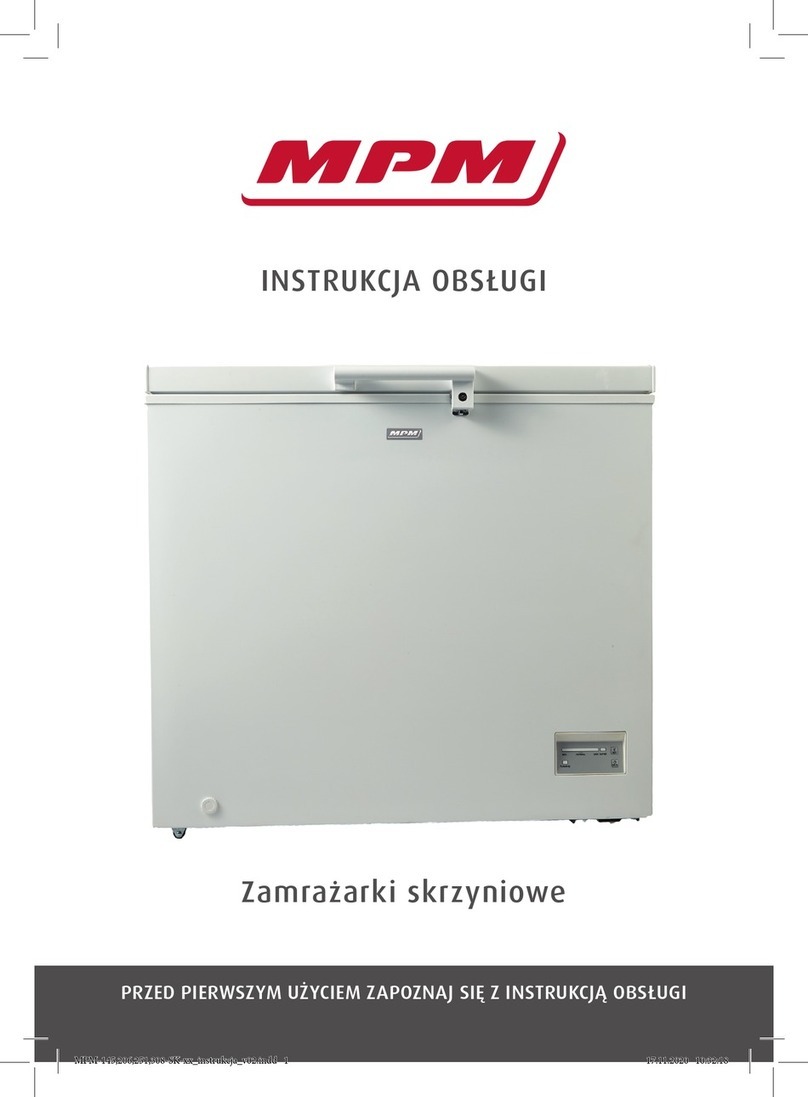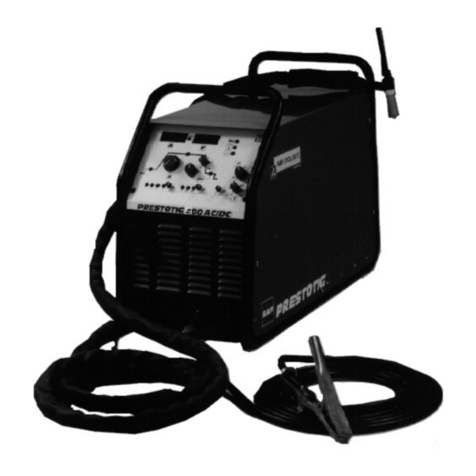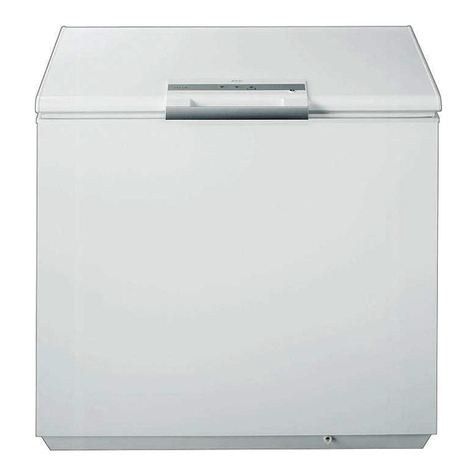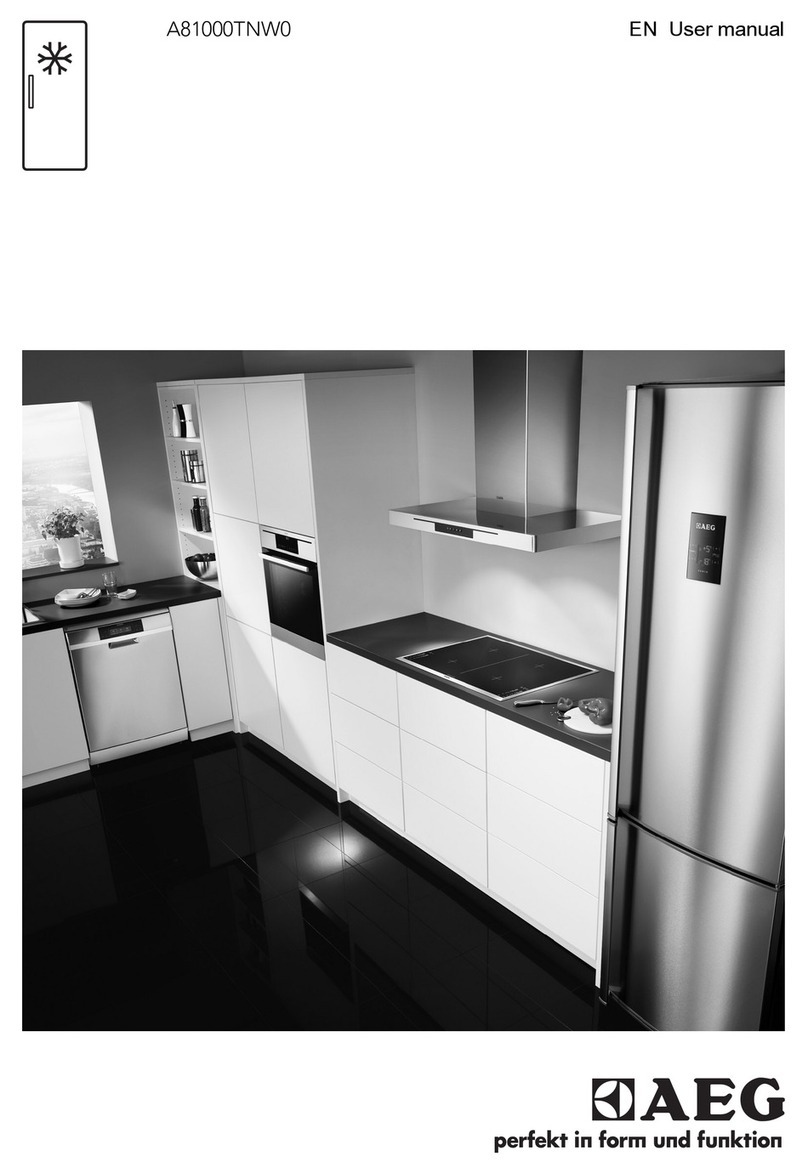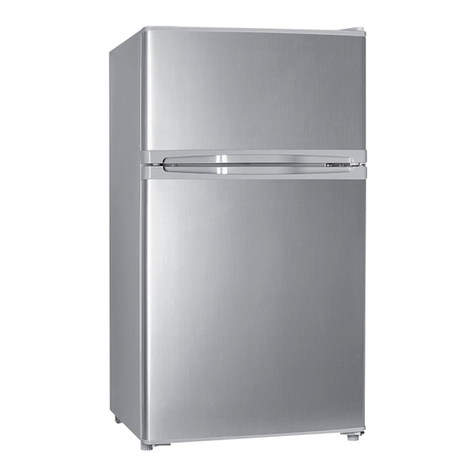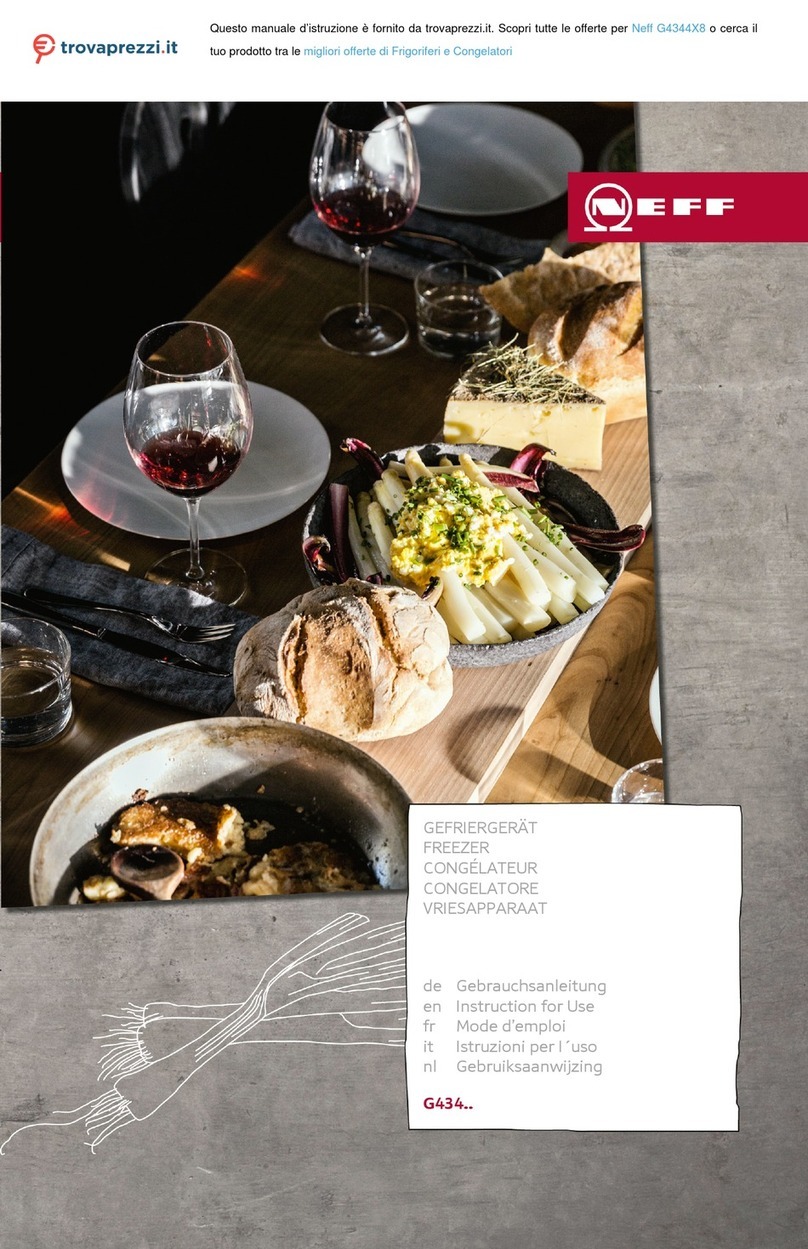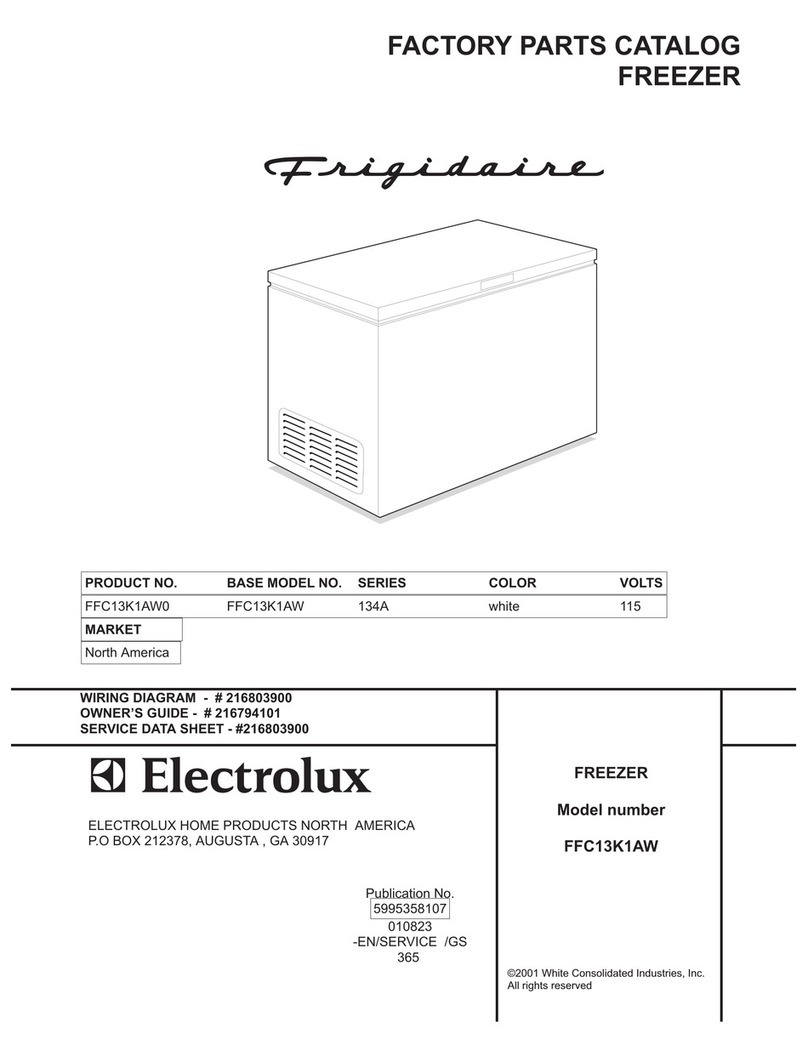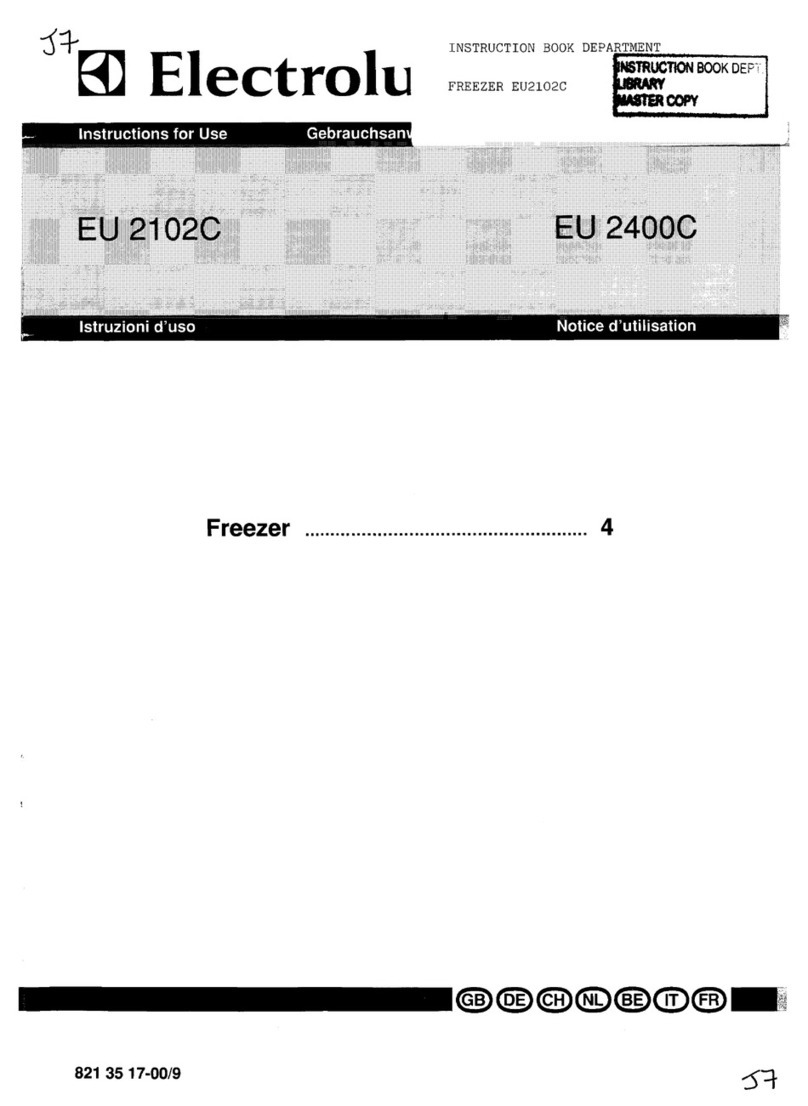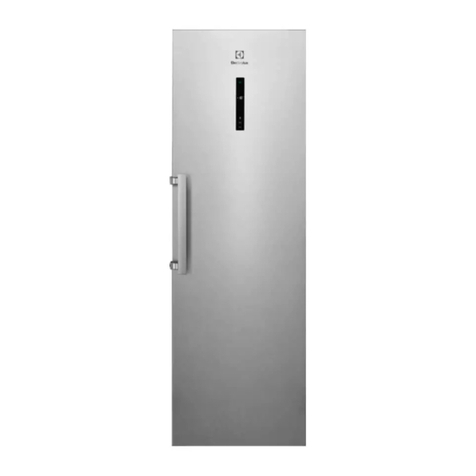6
Using the Appliance
Before Use
Remove all packaging and securing tapes. Wash
inside the appliance with lukewarm water and
bicarbonate of soda (5 ml to 0,5 litre of water). Do not
use soap or detergent as the smell may linger. Dry
thoroughly.
Do not use detergents, abrasive powders,
highly perfumed cleaning products, wax
polishes or products containing alcohol.
FFTo Start the Appliance
1. Allow the appliance to stand for 2 hrs after
installation.
2. Plug in the appliance and switch on at the mains
supply.
3. Turn the thermostat control to 'Super' and leave to
run for 4 hours to allow the correct temperature to
be reached before placing food inside.
4. Turn the thermostat control knob to 'Normal'.
Thermostat Control
The thermostat control knob situated on the side of
the cabinet regulates the temperature inside the
freezer.
Turning the thermostat control knob clockwise makes
the temperature progressively colder.
Stop - Off
Normal - To store
Super - To Freeze
Freezing Fresh Food
It is important that fresh food placed in the freezer is
frozen quickly and that the food already in the freezer
is heated as little as possible.
FFTo freeze fresh food:
1. Turn the thermostat control knob to 'Super' 6-24
hours before placing fresh food in the freezer. The
freezer will now run continuously, creating a
sufficient reserve of the temperature required.
2. Place the food on the freezing shelf of the freezer
and leave the thermostat control knob in the 'Super'
position for a further 24 hours.
3. After 24 hours, return the thermostat control knob
to the 'Normal' position. The freezer will return to
normal storage temperature. Place the frozen food
in the storing compartment.
If the thermostat control knob is left in the
'Super' position, the freezer will not be
damaged, but energy will be wasted.
Frozen Food Storage
When first starting the freezer or if the freezer has
been out of use for some time, we advise you to run
your appliance for at least 4 hours with the
thermostat control knob in the 'Super' position
before storing frozen food.
Do not exceed the storage period indicated by the
manufacturer.
Do not open the door frequently or leave it open
longer than is necessary.
Important
Do not put carbonated liquids in the freezer.
Ice lollies, if consumed immediately after
removal from the freezer can cause a low
temperature skin burn.
Do not remove items from the freezer if your
hands are damp/wet, as this could cause skin
abrasions or frost/freezer burns.
In the event of a power cut the food in the freezer
will not be affected if the power cut is short and
the freezer is full. Do not open the door. Should
the food begin to thaw it must be consumed
quickly and must not be re-frozen. (See Hints and
Tips)
Thawing
Deep frozen or frozen food, prior to being used,
can be thawed in the fridge or at room temperature,
depending on the time available. Small food items
may even be cooked from frozen, in this case
cooking will take longer.
Any frozen food which is allowed to thaw
accidentally should either be eaten as soon as
possible, or thrown away. Alternatively, if the food is
uncooked and has not been completely defrosted
it can be cooked and then refrozen.
Defrosted cooked food must never be
refrozen.
FFTo Make Ice Cubes
1. Fill the ice cube tray 3/4 full with cold water,
place on the freezing shelf and leave to freeze.
2. To remove the cubes twist the tray or hold it
under running water for a few seconds.
Never try to free an ice tray that is frozen
to the freezer shelf by using pointed or
sharp edged objects.
